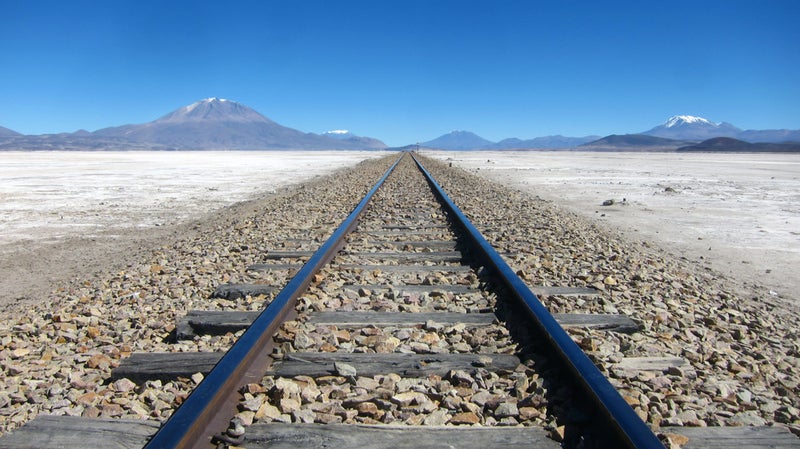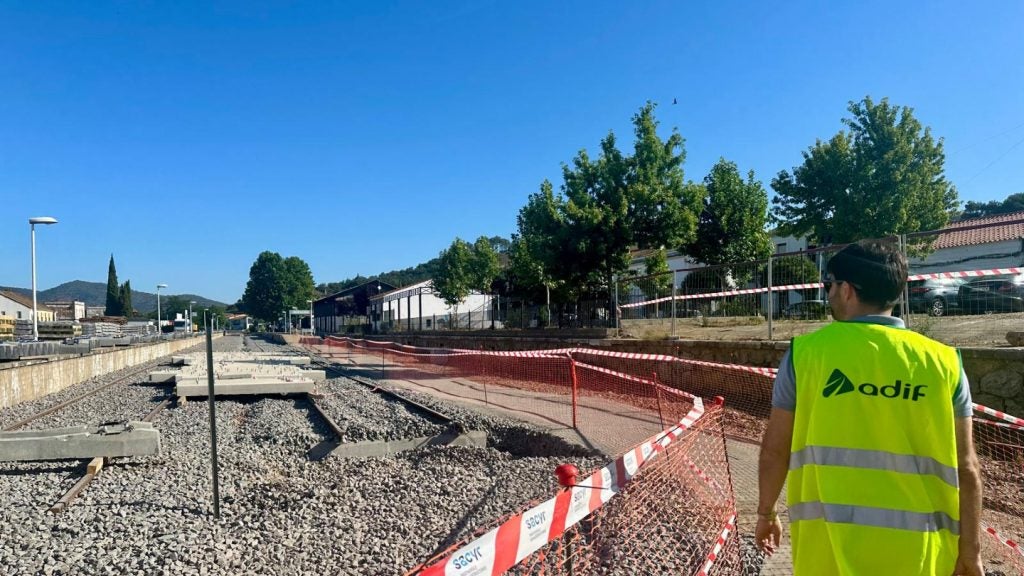On 3 September, the Chilean government announced a US$5 billion investment programme, entitled Chile Sobre Rieles (Chile on Rails) to upgrade and expand the country’s railway network.
The plan, which is the largest railway investment in the country’s history, consists of 25 investment projects covering 1,000km of railway lines and aims to triple passenger numbers to 150 million a year and double freight volumes to over 21 million tons a year by 2027.
How well do you really know your competitors?
Access the most comprehensive Company Profiles on the market, powered by GlobalData. Save hours of research. Gain competitive edge.

Thank you!
Your download email will arrive shortly
Not ready to buy yet? Download a free sample
We are confident about the unique quality of our Company Profiles. However, we want you to make the most beneficial decision for your business, so we offer a free sample that you can download by submitting the below form
By GlobalDataAccording to the Ministry of Transport, financing for these projects has already been secured, with 44% of total funding being directed to projects in the Santiago region while the remaining 56% will be directed to projects in regions outside Santiago.
Among the most important projects are the Santiago-Melipilla Melitrén railway ($1.6 billion), the Santiago-Batuco-Tiltil commuter rail line ($669 million); and the Merval Quillota-La Calera extension ($443 million).
The Melipilla-Alameda line, for example, involves the construction of a 61km rail line that will connect Santiago with the Melipilla province and carry 50 million passengers per year while the Santiago-Batuco-Tiltil line involves the construction of a 48km rail line that will link Santiago to Tiltil via Batuco and carry 17 million people a year.
Chile’s railway network extends 7,300km and is managed by the state-owned company Empresa de los Ferrocarriles del Estado (EFE). Like its Latin American counterparts, Chile mainly uses its railway system to transport freight. However, the network remains underdeveloped, and much of the serving infrastructure is deemed inadequate.
In the 2018-2019 World Economic Forum’s Global Competitiveness Report, Chile ranked 67th, out of 100 countries for the quality of its railway infrastructure compared to Mexico (54th), Argentina (68th), Brazil (83rd), Peru (87th), Colombia (99th) and Venezuela (100th).
Apart from the new railway investment programme, the government also launched a $7 billion road infrastructure plan last May to build nearly 17,000km of roads across the country as well as $2.4 billion Economic Stimulus Agenda in June to accelerate public works and revive the country’s economy, which has been hit by weakening global conditions.
Also, on 24 August the government announced an extra $600 in resources to boost investments between 2019 and 2020 in roads, access to drinking water, social housing, health and agriculture.
GlobalData is tracking large-scale railways construction projects in Chile worth nearly $19.1 billion, both in the public and private sector at all stages of development from announcement to execution. The pipeline, which includes all projects with a value above $25 million, has a high share of early-stage development projects, with 66% of the project pipeline by value in the pre-planning and planning stages as of September 2019.
Figure 1: Chile railway infrastructure projects pipeline, by stage (% of total)

Source: GlobalData © GlobalData
The majority of these projects are set to be financed by a combination of public and private sources (61.8%) while the remaining 38.2% will be directly financed by the public sector. Among the large-scale construction projects in the pipeline are the $2.5 billion Santiago Metro Line 7 and the $2.4 billion Santiago-Valparaiso Rail Line Development.










